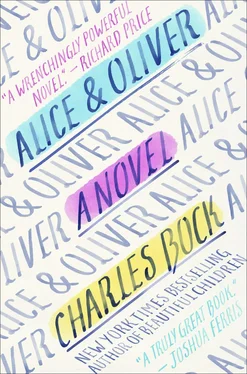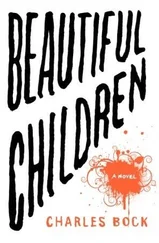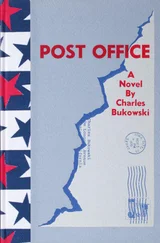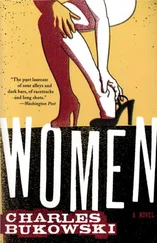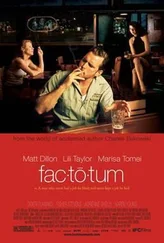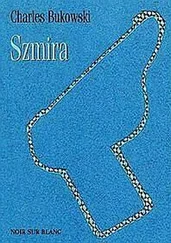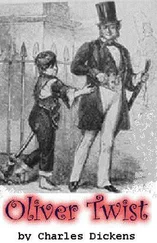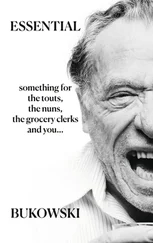“You have acute myeloid leukemia, or AML,” began Eisenstatt. “What this means: inside your bones there is marrow, a spongy red tissue responsible for producing your blood cells. AML is a mutation, or disruption, inside that marrow. Instead of producing a normal blood cell, your marrow produces purplish cells called myeloblasts.”
He checked to make sure she was with him, saw an eager student.
“Your red blood cell counts, your whites, your platelets — myeloblasts are what is produced instead, and when they replace your healthy blood cells, this causes a major disruption. Among what’s disrupted is the production of neutrophils — the part of the immune system that helps fight infections. We think this is what happened with your pneumonia. It’s why it was key for you to get diagnosed as quickly as you did.”
The sounds of Oliver scribbling. The conspicuous scratch of Bhakti’s nail file, now pausing. Alice gave Doe her forefinger. The baby’s cheeks imploded, her brow furrowed, her sucking rhythmic, fervent.
“With you, Doctor,” she said.
“Based on the genetic makeup of myeloblasts, AML has three possible courses of treatment. First: simple. The genetic makeup of the AML cells is, for lack of a better term, the most straightforward. Treatment: straight systematic chemotherapy. With simple AML we have a good—”
“You can spare us,” Oliver said. “We know we have the complicated kind.”
Eisenstatt nodded. “So you already know we’re looking at a stem cell transplant. And you know this is a serious procedure. We have to find a bone marrow donor with a genetic match of your DNA. There are ten categories that have to match. The more we can line up, the better we are.” He waited a count. “Since siblings have DNA from both parents, they often give us a chance at the best match. You’re an only child, so—”
“That option is not available,” Alice finished.
“We’ll look to the National Donor Registry. If and when we do match you with a donor, the next step would be an aggressive regime, followed by a transplant. You’ll be in the hospital for six to eight weeks, under a high-level quarantine.”
“The rooms on the transplant floor are very nice,” Dr. Bhakti said. She’d reemerged from whatever hole, her nail file no longer apparent.
Eisenstatt put down the clipboard next to him, picked it back up, tapped it against his upper thigh. “Transplants are a fairly recent development. And as far as the success rate—”
Alice cut him off. “Let me be as clear as I can make myself,” she said. “Any numbers or information that might upset me, I don’t want to know . I’m young. I’ve been healthy my whole life. I’m not another one of the seventy-year-olds in your waiting room, health and blessings to them all.”
She felt the bones inside her fingers vibrating, felt herself powerless to stop them, felt herself pulsing with strength, ready to vomit. “Please, just let me know what I have to do each day. Just put it in front of me. Do that, I promise, I will work hard. Because I am going to watch my child grow.”
Dr. Bhakti was looking at Alice in a manner that suggested, for the first time, she considered the possibility Alice might have legitimate thoughts and feelings. Dr. Eisenstatt was squinting lightly, his eyes considerate.
“I think your attitude is admirable,” he said. “I’ll only provide statistics if you ask.”
“Blinders on,” Oliver said. “That’s how we’ve been getting through this.”
“You should know,” the doctor said, “right now things are going extremely well. The work in New Hampshire was first rate. And getting you to this point was a big step. My job is to shepherd you to the transplant. I take this responsibility seriously. My modus operandi, I always operate on a worst-case-scenario basis. I’m going to assume the worst, give you the most conservative and oppressive possibilities. Consider me your new Jewish grandmother.” He met her eyes, gave a bit of a smile. “That’s my job. Get you to transplant. Once we find a donor, a transplant doctor will take over. You’ll go forward from there and be happy to be rid of me.”
Doe squirmed, kicking at Mommy’s chest.
“As I said, BMT is a fairly recent procedure,” Eisenstatt continued. “We’ve been doing it at Whitman for about five years. And while it’s no walk in the park, it can work: genetic matches do happen, people do find donors. People have this procedure and they get better. From what we’ve seen, new marrow acts as a cure.”
His words were punctuated by the redolent smack of hands against knees, Oliver rocking in place. Alice watched him flexing his feet, pressing forward from the balls of his toes; she was aware of her own stillness, the fussing child against the front of her right shoulder, her hand weak on the back of the baby’s head, supporting her. The child was sweating, her little fuzz of hair damp.
“I’m also legally obligated to tell you,” said Eisenstatt, “for medical purposes, we define cure as the disease being in remission for at least five years.”
An unhappy squeal, little hands pushing away from Alice’s neck.
Oliver was respectful, if uncertain: “You said you’ve only been doing them for five years?”
“Exactly,” piped Bhakti.
“Classifying remission as five years doesn’t mean your leukemia will return in five years,” Eisenstatt answered. “As you said, you’re young. You have a history of being healthy, a daughter and a husband — you have every reason to live.”
—
Early in the afternoon, on day forty-seven since Alice’s diagnosis in New Hampshire, Oliver was standing in the back of the exam room, listening to a chunky-watch-wearing catalogue-looking motherfucker talking about some sort of irregularities with Alice’s blood work. Alice’s numbers weren’t bad, the doctor was saying. But he was still concerned with the makeup of Alice’s cells. In fact, Oliver was watching the guy push to do some procedure that Oliver had vaguely heard references to before. “I’d like to do it as soon as possible,” he was saying to Alice, “if that’s okay with you.”
This procedure, this aspirate — this bone marrow aspirate — would allow Dr. Eisenstatt to find out what was going on with the closest person to Oliver on this stupid planet, Oliver was hearing. And usually, when Oliver heard something scary, his means of dealing with, or addressing his fears was to share them, only he couldn’t, not now, because these worst-case scenarios all involved the person he wanted to share them with. So, the sharing option wasn’t on the table. And this lovely woman, she was bereft, her body racked, tremorous. She was gulping through tears: “I’m never going to get better.”
Some sort of levee inside Oliver was breached, and now tears stung, left hot trails down his cheeks. “You’re not allowed to say that,” he said, fighting to breathe, embracing his wife. His voice went sharp: “That can’t be true.”
—
Alice had a deep-rooted conviction that, as a means of expression, tears were just as valid as speaking, just as necessary as laughter. Anywhere, any time, no matter how uncomfortable it may have made people around her, Alice was fine with a good cry. If Oliver mocked her, if he derived pleasure from needling her, that didn’t matter much, in the end — for after all his little quips went silent, he still put up with her waterworks. Meanwhile, Alice could count on one hand the number of times she’d seen him cry. Number one was easy: when he’d cut the umbilical cord on his baby girl and taken Doe in his arms for the first time. Two, also easy: their wedding, staring into Alice’s eyes, slowly rocking to and fro while the Ramones blared around them and friends watched in silent joy, their first dance together as man and wife. Three: the call from his mother with news that Magoo, his beloved childhood dog, had finally been put down. Then when that power forward on the Knicks — who Oliver rooted for and insisted was underrated — had choked on consecutive point-blank layups during a key sequence of a deciding play-off game against Jordan and the Bulls. (The image fresh even now to her: the final buzzer sounding; Oliver walking numbly away from the television, shutting their bedroom door behind him; minutes later Alice entering to see him sitting on the edge of the bed, face in his hands.)
Читать дальше
